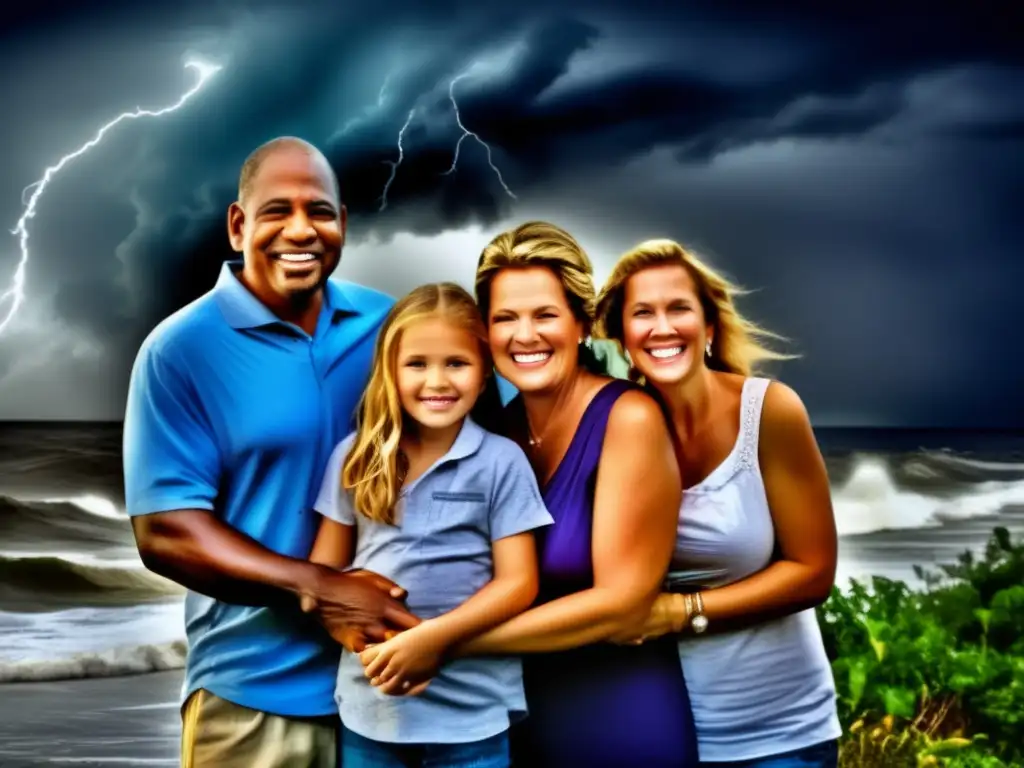Emotional Support Animals And Hurricanes: What To Know

Emotional Support Animals and Hurricanes: What to Know
- Introduction
- The Importance of Emotional Support Animals during Hurricanes
- Preparing Your Emotional Support Animal for a Hurricane
- What to Expect When Bringing Your ESA to a Hurricane Shelter
- After the Hurricane: Coping with Emotional Distress
- Frequently Asked Questions
- Conclusion
- Additional Resources
Introduction
Hurricanes can be unpredictable, dangerous, and traumatic events. For those living in hurricane-prone areas, it's important to be as prepared as possible for the physical and emotional impact of these storms. One increasingly popular coping mechanism for individuals dealing with emotional stress is the use of emotional support animals (ESAs). This article will explore the role of ESAs during hurricanes, what to know about bringing them to emergency shelters, and how they can help provide comfort and support during and after the storm.
The Importance of Emotional Support Animals during Hurricanes

What is an Emotional Support Animal?
An ESA is a type of assistance animal that provides therapeutic support to someone with a mental or emotional disability. Unlike service animals, which are trained to perform specific tasks for their owners, ESAs offer emotional support to their owners simply by being present.
How Can Emotional Support Animals Help During Hurricanes?
For many people, the stress and trauma of a hurricane can trigger anxiety, depression, and other mental health challenges. ESAs have been shown to help reduce stress levels, lower blood pressure, and increase overall feelings of wellbeing. During a hurricane, the presence of an ESA can help provide comfort and reassurance to their owner, making them feel less alone and more supported during a stressful time.
Can ESAs Be Brought to Emergency Shelters?
Yes, under federal law, individuals with disabilities are allowed to bring their ESAs with them to emergency shelters during natural disasters like hurricanes. However, it's important to note that these shelters may have their own set of rules and regulations when it comes to animals, so it's important to check with the specific shelter you plan to go to before bringing your ESA.
Preparing Your Emotional Support Animal for a Hurricane

Ensure Your ESA is Up-to-Date on Vaccinations and Medications
Before a hurricane hits, it's important to make sure your ESA is up-to-date on all necessary vaccinations and medications. Make sure you have enough of any prescription medications to last through the storm and its aftermath.
Pack an Emergency Kit for Your ESA
Just like you would pack an emergency kit for yourself and your family, it's important to have an emergency kit for your ESA as well. This should include food, water, any medications, a leash or harness, and any other supplies your ESA may need during the storm.
Have a Plan for Evacuating with Your ESA
If you need to evacuate your home during a hurricane, make sure you have a plan in place for bringing your ESA with you. This may involve finding pet-friendly hotels or making arrangements to stay with friends or family who are willing to accommodate your ESA.
What to Expect When Bringing Your ESA to a Hurricane Shelter

Register Your ESA
When you arrive at a hurricane shelter, you will likely need to register your ESA. This may involve providing proof of your disability and your ESA's qualifications, as well as filling out any necessary paperwork.
Follow the Rules and Regulations of the Shelter
Each hurricane shelter may have their own set of rules and regulations when it comes to animals. It's important to follow these rules to ensure the safety and comfort of all shelter residents, including your ESA.
Be Prepared to Care for Your ESA
You will be responsible for caring for your ESA while you are at the shelter. This includes providing food, water, and any necessary medications, as well as cleaning up after your ESA and ensuring their behavior is appropriate around other shelter residents.
After the Hurricane: Coping with Emotional Distress

Continue to Provide Emotional Support to Your ESA
Just like you may be experiencing stress and trauma after a hurricane, your ESA may also be affected by the storm. Make sure to continue providing emotional support to your ESA and giving them extra attention and care as needed.
Seek Professional Help if Needed
If you or your ESA are struggling with emotional distress in the aftermath of a hurricane, it's important to seek professional help. This may involve talking to a therapist or counselor or attending a support group for individuals dealing with the emotional impact of natural disasters.
Stay Connected to Your Community
One of the best ways to cope with the emotional trauma of a hurricane is to stay connected to your community. This may involve reaching out to friends and family for support, attending community events and gatherings, or volunteering to help with recovery efforts in your area.
Frequently Asked Questions

-
Can I bring my emotional support animal with me to a hurricane shelter?
Yes, under federal law, individuals with disabilities are allowed to bring their ESAs with them to emergency shelters during natural disasters like hurricanes. However, it's important to check with the specific shelter you plan to go to before bringing your ESA, as there may be additional rules and regulations that apply.
-
What should I do to prepare my emotional support animal for a hurricane?
Make sure your ESA is up-to-date on all necessary vaccinations and medications, pack an emergency kit for your ESA, and have a plan in place for evacuating with your ESA if needed.
-
What should I expect when bringing my ESA to a hurricane shelter?
You will likely need to register your ESA and follow any rules and regulations of the shelter. You will also be responsible for caring for your ESA while you are at the shelter.
-
How can I cope with emotional distress after a hurricane?
Continue to provide emotional support to your ESA, seek professional help if needed, and stay connected to your community.
-
Can emotional support animals receive special training to better cope with hurricanes?
While ESAs do not typically receive the same type of specialized training as service animals, some may benefit from training that helps them stay calm and comfortable during storms or other stressful events.
Conclusion
During a hurricane, emotional support animals can play an important role in helping their owners cope with the stress, trauma, and uncertainty of the storm. Whether you're preparing for a hurricane or recovering from one, it's important to ensure your ESA is well taken care of and that their emotional needs are met. By following the tips and guidelines outlined in this article, you can help ensure a safe and supportive experience for yourself and your ESA during hurricane season.
At HurricaneInsider.org, we are dedicated to providing comprehensive information on all aspects of hurricanes, from preparation and safety to recovery and emotional support. We encourage readers to share their thoughts and experiences in the comments section, as well as to subscribe and actively engage with our community. Thank you for your time and attention, and stay safe!
Additional Resources

- U.S. Department of Justice - Service Animals FAQ
- Mental Health.gov - Coping with Disasters and Traumatic Events
- American Red Cross - Pet Disaster Preparedness
 Portable Weather Stations
Portable Weather Stations Save Your Memories: Protecting Sentimental Items From Hurricanes
Save Your Memories: Protecting Sentimental Items From Hurricanes Leak Sealants
Leak SealantsIf you want to discover more articles similar to Emotional Support Animals And Hurricanes: What To Know, you can visit the Hurricane preparedness: category.
Leave a Reply

Articulos relacionados: